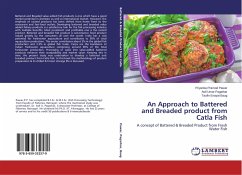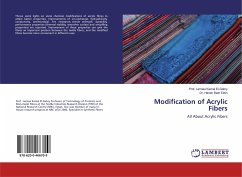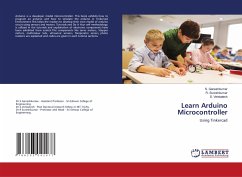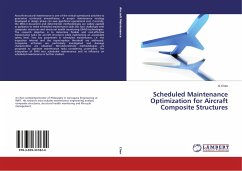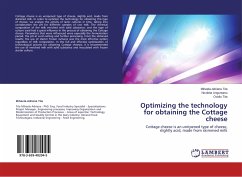
Thermoprocessment of tambaqui fish in tucupi sauce
Versandkostenfrei!
Versandfertig in 6-10 Tagen
26,99 €
inkl. MwSt.

PAYBACK Punkte
13 °P sammeln!
Freshwater fish has been used in several technological processes and species such as tilapia, pacu, lambari, jundia were tested. Due to the development of new techniques, expansion of aquaculture and stabilization of marine catches in recent years, there is a need for fish conservation through the production of preserves based on freshwater fish farming. The production of canning allows storage and transport to distant locations in optimum safety conditions, facilitates distribution and ensures longer shelf life compared to other methods of preserving fish. The use of local fish species and ot...
Freshwater fish has been used in several technological processes and species such as tilapia, pacu, lambari, jundia were tested. Due to the development of new techniques, expansion of aquaculture and stabilization of marine catches in recent years, there is a need for fish conservation through the production of preserves based on freshwater fish farming. The production of canning allows storage and transport to distant locations in optimum safety conditions, facilitates distribution and ensures longer shelf life compared to other methods of preserving fish. The use of local fish species and other ingredients can stimulate the canned food industry. Tambaqui is the most native species produced in Brazil. Tucupi is a sauce obtained from the wild cassava widely appreciated and used in the culinary of the North and Northeast of Brazil.



